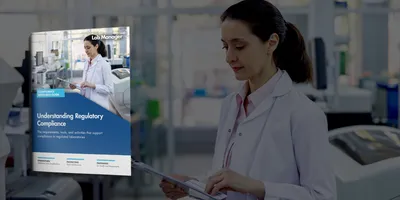Employee engagement brings many benefits to the lab. Gallup’s employee engagement surveys demonstrate the benefits to labs and organizations. Some of the most important benefits of engagement to lab managers include a 64 percent reduction in safety incidents, 14 percent improvement in productivity, an 81 percent reduction in absenteeism, and an 18 percent reduction in turnover. Perhaps the most important benefit of engaged staff is discretionary effort and ideas. When lab staff are engaged, they are more likely to put in the extra effort to get the science to work and contribute their ideas to help address challenges and advance the technical work at the bench. These benefits can be achieved with little or no cost, just time and effort in delivering to your staff what they need.
Here are six ways you can improve staff engagement as a lab manager. The key to delivering on these improvement activities is to get to know your staff, spend time with them, and provide them the foundation needed to be successful in the lab.
Trusting relationship
Invest time into building a positive and trusting relationship with staff. Demonstrate that you care about them as people and as a coworker. Ensure that they will feel comfortable bringing up difficult topics with you by being an effective active listener. Show them that you value their contributions and understand their work challenges.
Clear expectations
Ensure that everyone on staff has a clear understanding of their roles and responsibilities, and SMART (specific, measurable, achievable, reasonable, and timely) objectives. The more confident staff are about what is expected of them, the more effective they will be in the lab. This also builds a sturdy foundation on which to have meaningful conversation about performance.
Praise and recognition
Demonstrate that you value their effort, innovation, and success in the lab. All too often, lab managers focus only on the problems and issues, and only interact with staff when things go wrong. Simply being present and appreciative when things go right goes a long way with staff. This can be as simple as a genuine ‘Thank You’ to show your appreciation.
Coaching and feedback
Take the time to help staff improve in their roles and prepare for future roles. Everyone needs someone to notice their progress, or lack of progress, and provide coaching to encourage and help them. Constructive criticism is a gift. Too many lab managers just provide criticism which outlines the problem. To improve staff engagement, provide more. Give staff ideas of how to improve their performance and correct issues. Coaching and feedback is required throughout the year, not just in formal performance reviews. Purposeful feedback can be delivered in many small ways including one-on-one meetings, while walking through the labs, and in private moments with staff.
Building strengths
Staff are more engaged when they are consistently using their strengths on the job. Spend time with staff to help them identify their strengths, and then adjust their work responsibilities so that they are mostly working in areas of strengths. Prepare development plans for staff that focus on growing their strengths. People are much more likely to follow through on plans that encourage them to continue building strengths, rather than on correcting weaknesses. Growing strengths can lead to excellence where correcting weaknesses can only result in mediocrity.
Lab Management Certificate
The Lab Management certificate is more than training—it’s a professional advantage.
Gain critical skills and IACET-approved CEUs that make a measurable difference.
Ongoing development
Provide opportunities for staff to receive training and develop their skills. Having a focus on development provides three key things for the lab. First, it builds skills, knowledge and expertise which can be used to improve the science and deliver for stakeholders. Second, it shows people that they are important and worthy of further investment. It helps validate the effort they put in for the lab. Third, it provides a future vision for staff that allows them to see their role in the lab growing and reassures them that they have an ongoing part to play in the lab.
Delivering on these employee needs requires you to focus on the people. Everything that the lab creates, generates, and delivers is due to the people who work there. Too many lab managers lose their people focus among the demands of budgets, delivery, and technical challenges. The most successful lab managers realize that the best way to accomplish all those things is by having a highly engaged and motivated lab staff. Investing time to deliver these things that people need will pay significant dividends when that engaged staff delivers at the best of their potential.
To learn more about how to be a better lab leader, explore related courses with the Lab Manager Academy.













